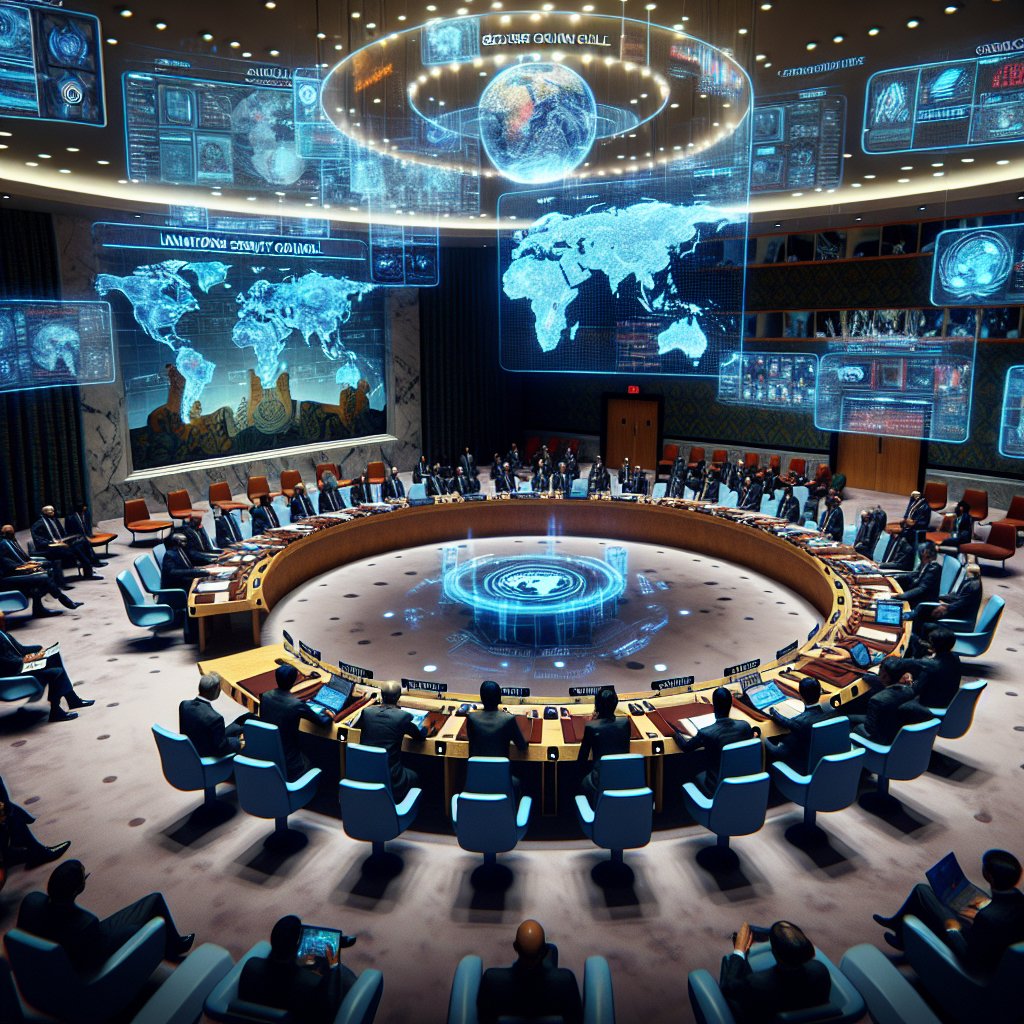Image created by AI
Tensions Escalate as UN Security Council Convenes Over Killing of Hamas Leader
The United Nations Security Council is set to convene an urgent session amidst soaring tensions following the killing of Hamas political chief Ismail Haniyeh in an Israeli strike on Tehran. The emergency meeting, scheduled for Wednesday 4:00 pm (2000 GMT), comes at a time when the international community is grappling with the rapidly escalating conflict in the Middle East.
This meeting is a response to requests from Iran, with strong support from the permanent representatives of Russia, China, and Algeria, reflecting the gravity of the situation. The Russian presidency of the council, currently at the helm of its rotating leadership, confirmed the session, signaling heightened international concern.
In parallel, UN Secretary-General Antonio Guterres has publicly denounced the attacks, labeling them as a dangerous surge in hostilities. With assaults in both Tehran and Beirut, including the killing of Hezbollah military leader Fuad Shukr in Lebanon, the Secretary-General emphasized the pressing need for de-escalation and focus on achieving a ceasefire in Gaza and the release of all Israeli hostages.
Iran's envoy to the UN, Amir Saeid Iravani, penned a profound letter to the Security Council demanding firm condemnation of Israel's actions, which are seen as egregious violations of the sovereignty of Iran, Lebanon, and Syria. The envoy's appeal includes a call for the international community to consider immediate measures to ensure accountability, which may entail potential sanctions.
Hamas, for its part, has fiercely declared that Israel will not elude retaliation for its attacks, signaling the possibility of further conflict ahead. Furthermore, Iran's Supreme Leader Ayatollah Ali Khamenei has promulgated a vow of "harsh punishment" in retribution for the death of Haniyeh. Given these pronouncements, the atmosphere in the region remains charged with the potential for escalation.
Wednesday’s emergency meeting of the UN Security Council is anticipated to be a critical juncture, as major world powers deliberate on their response to the crisis. With the international community watching closely, the council's decisions may well have significant ramifications for the prospect of peace and security in the already volatile Middle East.










